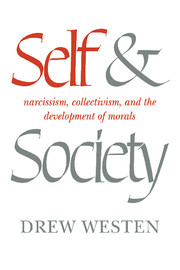Preface
Published online by Cambridge University Press: 11 November 2009
Summary
Society must be studied in the individual and the individual in society; those who desire to treat politics and morals apart from one another will never understand either.
RousseauTwo hundred years after Rousseau wrote these words, the social sciences relate to one another like the three rings of a circus: their activities are largely independent, though an occasional tightrope walker straddles the boundaries in defiance of the frightful distance between himself and solid ground. The purpose of this book is to provide a safety net, so that momentary stumbles do not prove fatal or debilitating.
Many problems confront theorists who attempt to reconcile psychological with sociocultural variables, the greatest of which is the integration of different levels of analysis. The easiest – and the most fallacious – method of simultaneously examining personality processes and sociocultural phenomena is reductionism, i.e., considering one set as dependent, and the other as independent variables. A truly integrated approach, in contrast, must be able to treat both individual and social variables as dependent and independent and to reassemble the data in some coherent fashion. Such is the aim of this project.
The book proposes a theory of personality, a social theory, and a theory about the interrelation of the two. Not only analytically, but stylistically, such a crossing of traditionally distinct disciplinary boundaries presents problems that I have been only partially successful in resolving. The analysis of psychological data, for example, is written with the intent both to suggest to psychologists a new way of viewing personality and psychological development, and to explicate for nonprofessional readers the personality theory.
Information
- Type
- Chapter
- Information
- Self and SocietyNarcissism, Collectivism, and the Development of Morals, pp. xi - xviiiPublisher: Cambridge University PressPrint publication year: 1985
